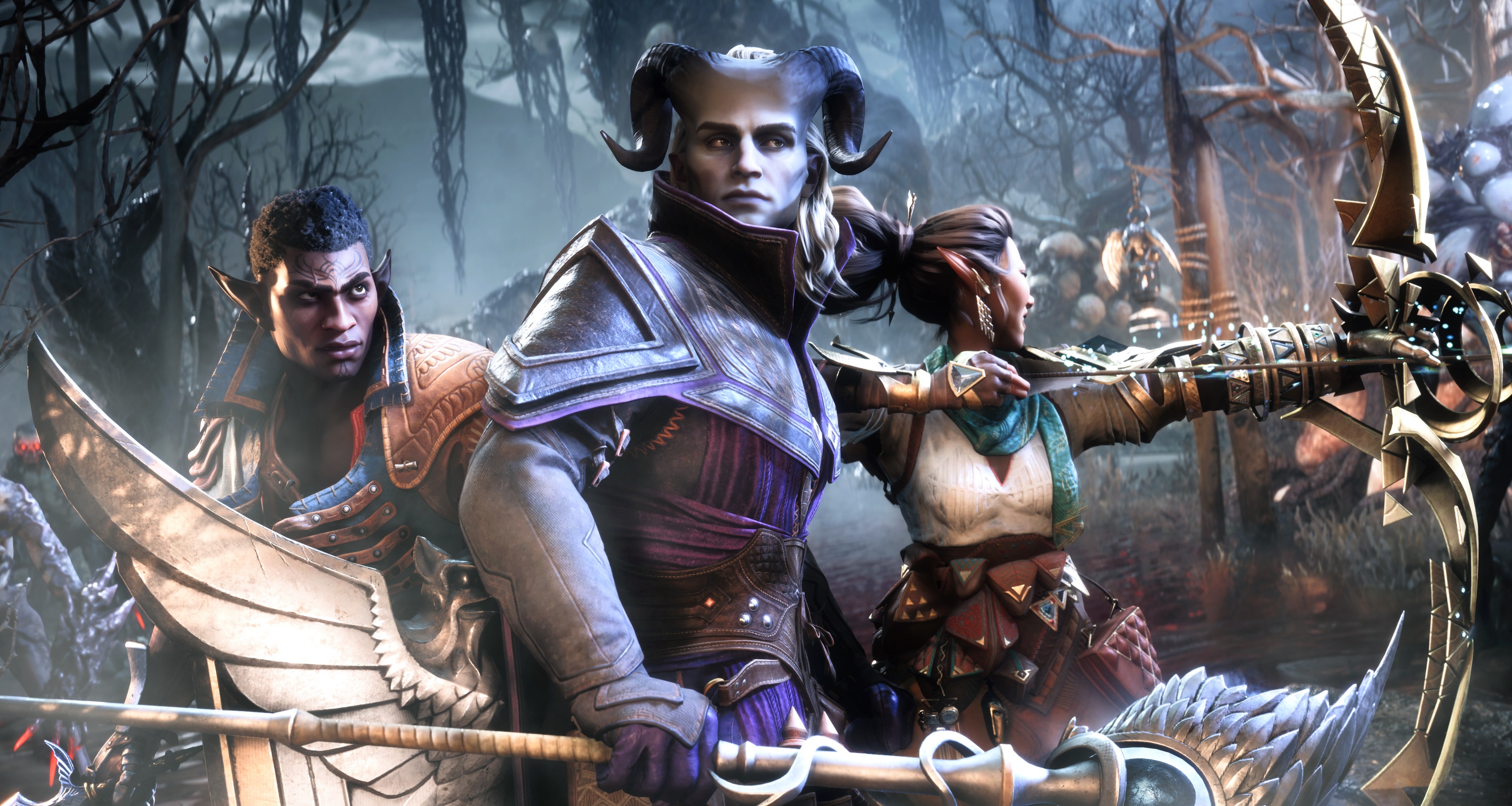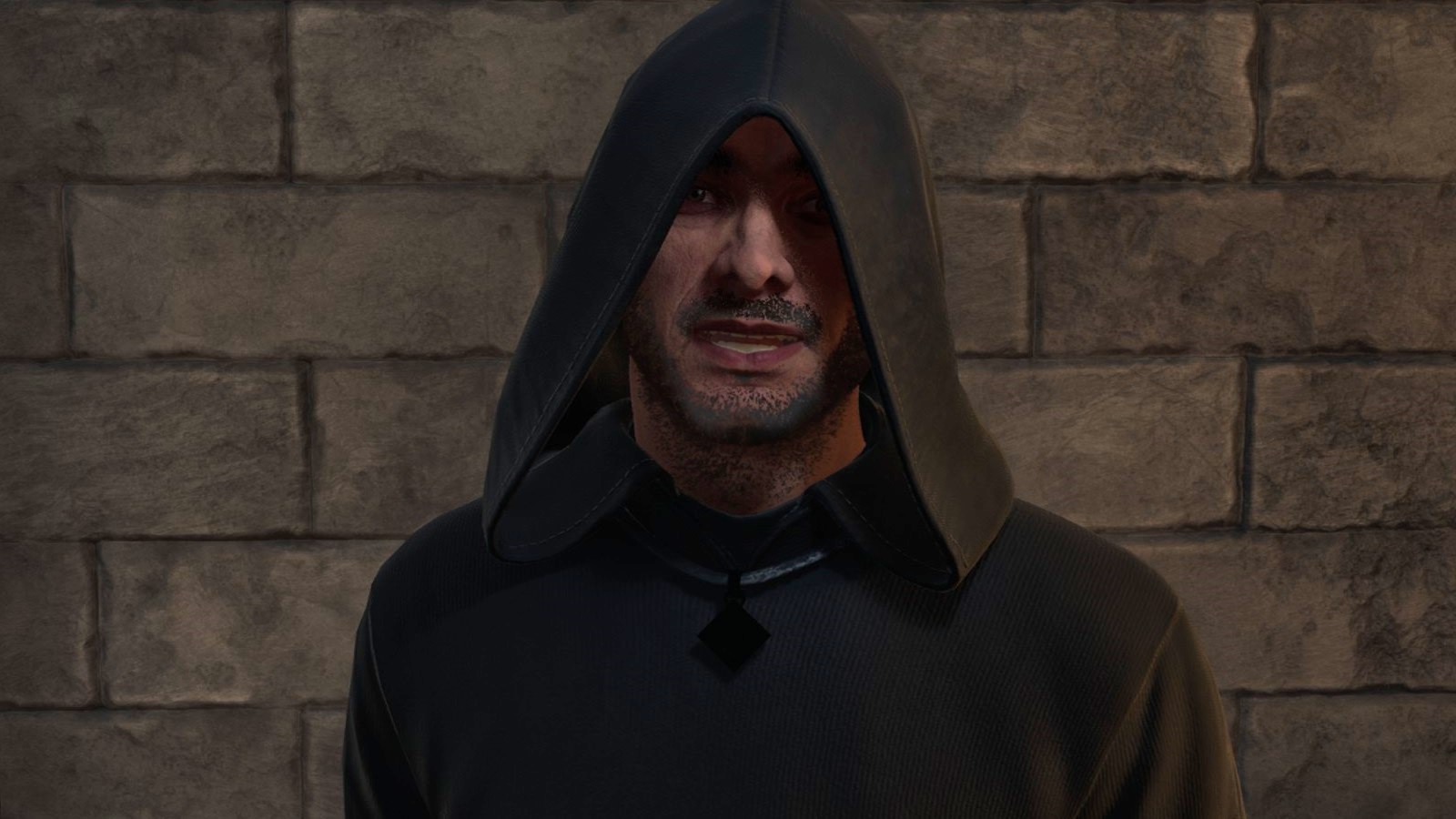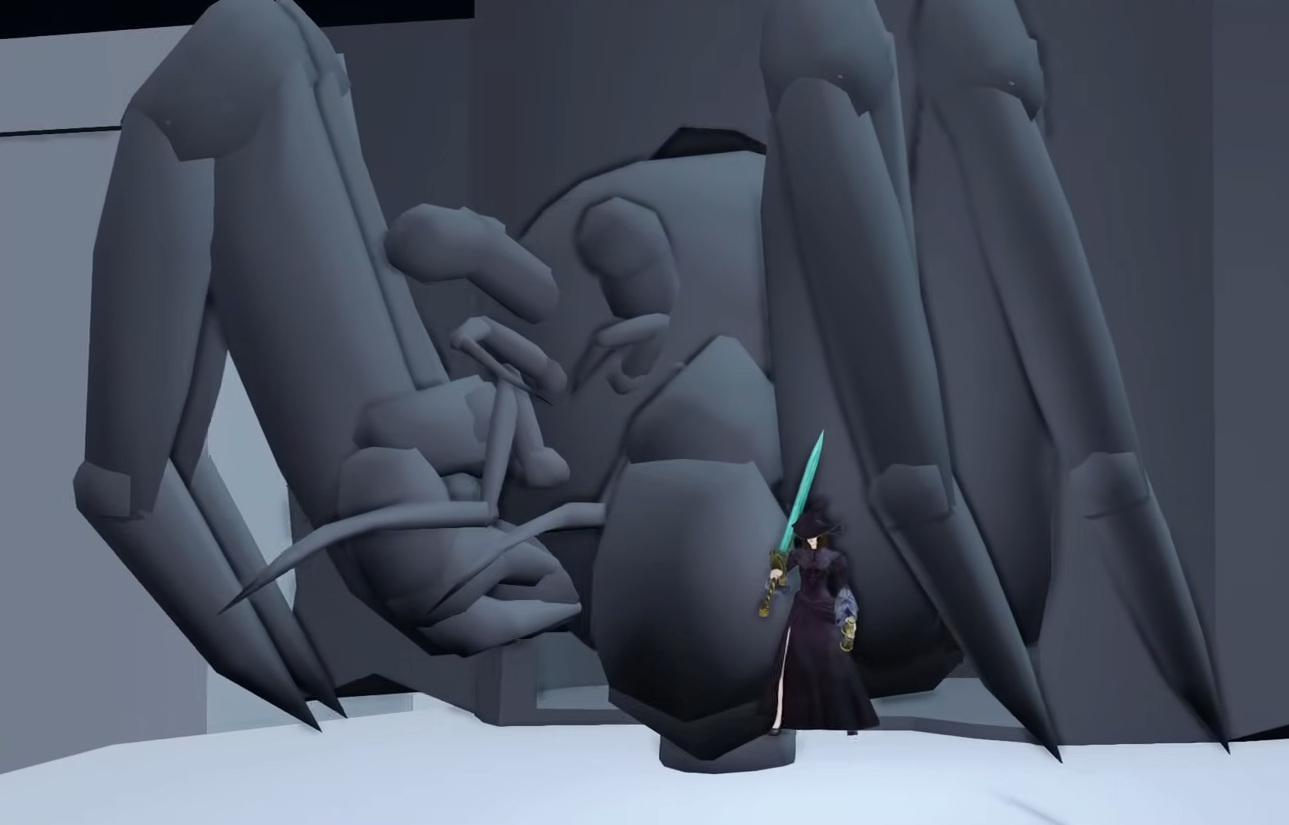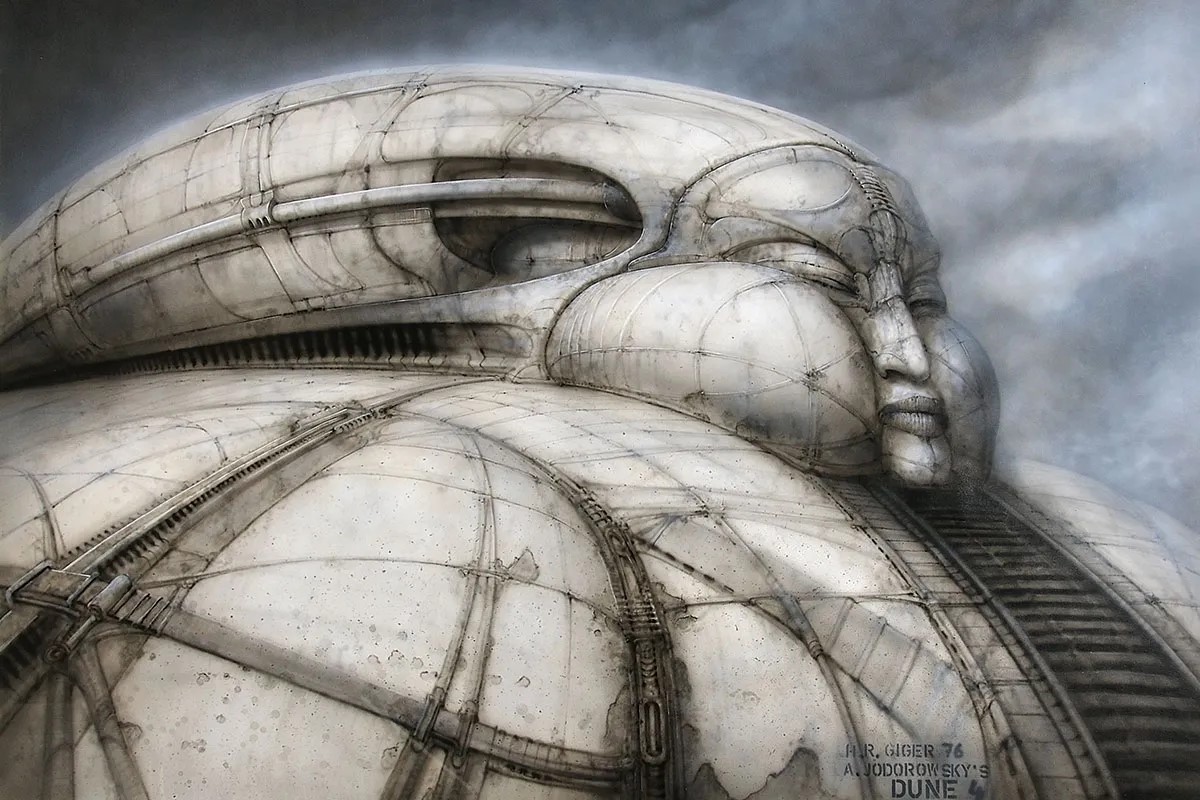
BioWare's latest RPG seems to be simultaneously ignoring its roots and stuck in the past.
I don’t know who Dragon Age: The Veilguard is for—it certainly doesn’t seem to be RPG fans. BioWare gave us our first glimpse of the game in action this week, and while it was a big improvement over the initial reveal trailer, it seems to have completely shed its CRPG roots. As Josh wrote in his preview, “Dragon Age becomes what it was probably always destined to be: A Mass Effect game“. If it wasn’t already apparent from Andromeda and Anthem, this really hammers home how out of touch BioWare and EA have become.
When BioWare introduced the world to Mass Effect, it was trying to find its place in a world seemingly dominated by consoles. It’s easy to forget that PC gaming was in a dire state not all that long ago, inundated as we were with poor quality ports and constant snubs whenever E3 rolled around. How things have changed. Now nearly every game launches on PC— frequently the definitive version—and instead it’s E3 that’s dead.
But Mass Effect’s concessions to the console crowd made perfect sense at the time. People didn’t seem to want CRPGs anymore. They wanted cinematic action and explosions and companions that you could ignore until you felt like flirting with them. And in a sci-fi game where you’re effectively a special forces soldier, it felt like a good fit.
It was with Dragon Age where BioWare kept its CRPG legacy alive. Origins launched two years after Mass Effect, and while it came to consoles as well, there was no denying how rooted it was—as the spiritual successor to Baldur’s Gate—in the studio’s past. Sure, it was gory and gritty, and the real-time-with-pause combat system could be completely ignored, but this was a classic RPG. But EA never seemed to see the appeal in the series, according to lead writer David Gaider, even when it outsold Mass Effect twice, first with Origins and then with Inquisition.
This is likely one of the reasons why, since Origins, Dragon Age has struggled with its identity. With Dragon Age 2, we got an RPG with some of BioWare’s best storytelling, but it was shackled to a combat system that lacked any tactical nuance, and it was devoid of the meaty, interactive systems that make RPGs so compelling. BioWare eventually followed it up with Inquisition, a game that tried to satisfy both CRPG players and action-RPG stans. It was an improvement, certainly, but there was so much friction between its two competing game design philosophies. I still have a lot of fondness for it, but it never felt as confident or cohesive as Origins.
(Image credit: EA)
Dragon Age: The Veilguard seems to have resolved this friction by completely doing away with the CRPG side of things. Granted, this is just based on one demo and a gameplay reveal, but this is how BioWare and EA have decided to showcase the game to the world, and it doesn’t make a great first impression. What they’ve decided to show off is a game that frequently wrenches control from the player, offers limited dialogue options and features a combat system designed for the action crowd, complete with active dodging and parrying.
I’m hesitant to call it mindless, but as I was watching I certainly started to drift off.
Last year, when some early gameplay was leaked, the combat system got folks wondering if Dragon Age was taking inspiration from soulslikes. At the time, I prayed it wasn’t—and thought it seemed unlikely, since these mechanics aren’t remotely exclusive to that subgenre—but now that I’ve seen what The Veilguard looks like in action, I actually wish it had taken more cues from the likes of FromSoftware.
Elden Ring might be an action-RPG, but there’s no denying that its deadly battles are deeply tactical. Every move you make has weight and risks, and every fight is bursting with potential for anecdotes—embarrassing deaths, close calls, glorious against-the-odds victories. None of that thoughtful, tense duelling is apparent in The Veilguard. Instead we get something awkwardly elastic and forgettably cinematic. Josh described it as “slickly animated and, at times, even reasonably challenging for our presumably quite experienced demo-er”, so I’m hesitant to call it mindless, but as I was watching I certainly started to drift off.
(Image credit: EA)
An earlier scene has left me convinced this sadly isn’t a one-off. After a fight against some demons, the party encounters a magical barrier halting their progress. One of the things I love most about RPGs is how something as simple as a locked door or blocked corridor can add texture to an adventure. Maybe you need to rethink your route and find a way around it, or hunt down the location of a key. Perhaps this is a door you’ll be able to open later, creating a shortcut through a dangerous area. Or it could be that you have some special skill that you’ll be able to employ—like a rogue who can pick locks—reinforcing the roleplaying fantasy. In The Veilguard, it’s none of these things. The player character just hits it with a sword and it dissipates. So what was the point of it at all?
The Veilguard is the kind of RPG I would have expected BioWare to make right after the EA acquisition, when nobody was making CRPGs anymore and flashy 3D action games were what got people salivating. But it’s 2024. All the genres that were kicked into their graves by the console conquest are back. Adventure games are cool again, we’re flooded with RTSes, and one of the biggest games of the last year, which has been a permanent fixture in Steam’s top-seller list, is a proper CRPG. Baldur’s Gate is back, baby, and it seems like nobody told BioWare.
People aren’t afraid of dense systems or complexity, and they don’t want to just hammer some buttons on a controller. The delineation between PC gamers and console gamers has been completely destroyed—folks are playing MMOs and strategy games on their Xbox, and the best handheld is a tiny PC. Games don’t need to pander to platforms anymore, they just need to be good.
(Image credit: EA)
EA’s myopic vision has blinded it to reality, infecting BioWare with the inability to make the kind of games people actually get excited about. This should have been a huge moment—a way to show that after years of missteps it’s actually listened. Instead, it seems to be doubling down on its mistakes. What started as a studio desperately trying to maintain its relevance and chase what seemed like the future of RPGs has become a studio stuck in the past, unable to adapt to an industry and genre at their most vibrant. And it’s the worst part of the genre’s past to get stuck in—a dead end with nothing new to add.
EA’s myopic vision has blinded it to reality, infecting BioWare with the inability to make the kind of games people actually get excited about.
The Mass Effect model is just too simple. Andromeda failed for many reasons, from mismanagement to iffy writing, but the heart of the problem was that it had nowhere to go. Mass Effect 3 at least tried to do something new-ish with its war system, but the series’ framework is just so limiting, and the philosophy behind it places so little importance on the kinds of systems that allow RPG designers to flex. Hence why Andromeda’s big advancement was making the game a bit more open-world. We got three genuinely great games, but after the trilogy concluded BioWare should have moved on.
(Image credit: EA)
You could argue that my desire to see Dragon Age return to its CRPG roots means I’m stuck in the past, too, but there’s a crucial difference. Games like Planescape: Torment, Baldur’s Gate, Ultima, Arcanum: Of Steamworks and Magick Obscura—the classics—were all built on the foundations of tabletop roleplaying, and with that comes infinite possibilities, largely because it gives so much power and agency to players. Disco Elysium and Baldur’s Gate 3 prove that there’s still so much more that can be done with this RPG model, and they are far from alone in bringing tabletop ideas into the digital realm. This is the future of videogame roleplaying.
Last year, I said that the BioWare-style cinematic RPG was dead, it just didn’t know it yet. The Veilguard’s reveal has only reinforced this belief. We didn’t see a single fresh idea, or anything at all, in fact, to justify the sequel. The whole thing was excessively rote, and unless the finished product is markedly different, it feels like we could be witnessing the end of BioWare. The well is dry, and it’s time, finally, to move on.






